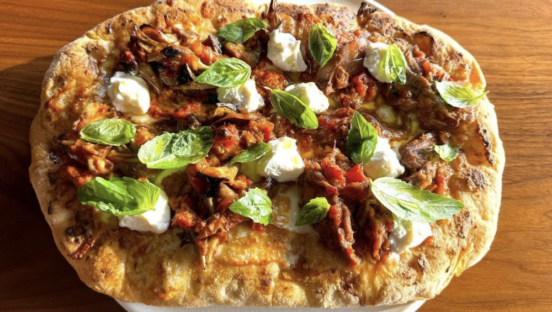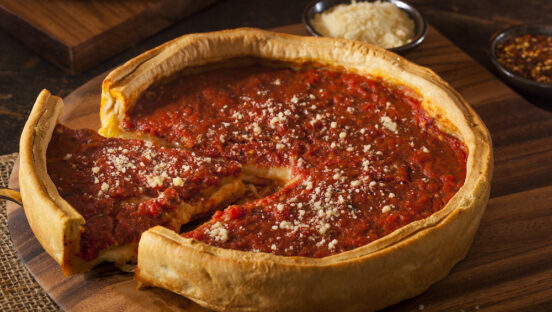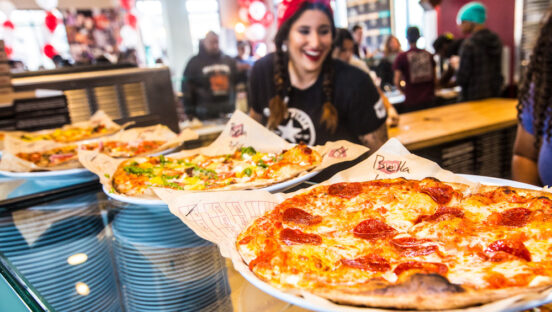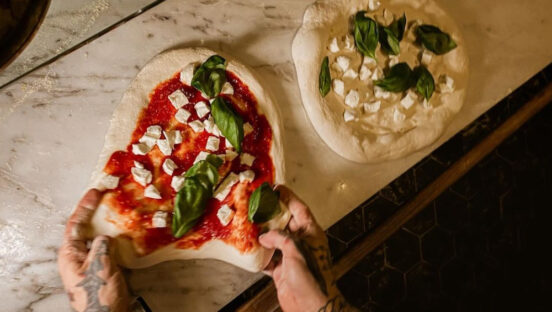Editor’s Note: This story was updated with new information on Monday, March 16.
Some restaurants and third-party delivery companies are turning to “contactless” delivery to keep sales going as fears mount over the spread of the coronavirus in the U.S. Others are striving to soothe customers’ worries by touting their food safety practices and the cleanliness of their restaurants.
Offering the option of contact-free delivery will likely become increasingly important as a number of states have ordered dine-in restaurants to either close down or reduce their hours and limit their service to carryout and delivery only. Among the states that have stepped in to curtail restaurant hours are California, Massachusetts, Illinois, Ohio, Michigan, New York and Washington.
The New York Times reports that restaurant business is down by 20 percent nationwide, by 30 percent in New York City and by up to 60 percent in Seattle, which has reported a total of 270 cases of the virus and 27 deaths. Seattle restaurateur and chef Tom Douglas announced he will temporarily close down 12 of his 13 restaurants after his sales declined up to 90 percent since the outbreak, according to the Seattle Times. A spokesperson for Douglas’ restaurants said he will reopen within eight to 12 weeks depending on market conditions.
Most restaurateurs can’t go that far, of course, so they’re looking for ways to keep their doors open. Pagliacci Pizza, with 25 stores in the Seattle area, announced earlier this week that it will leave delivered pizzas at customers’ doorsteps upon request—without any face-to-face contact. Customers are encouraged to include a tip for the delivery driver when placing orders on the phone, online or via the app. Pagliacci Pizza also provided an infographic explaining how the no-contact food delivery process works.

Postmates, a leading third-party platform, announced in a blog post recently that it would allow its users to “go non-contact and have deliveries left at the door … We know there are always people who, for health and other reasons, might prefer a non-contact delivery experience, and we believe this will provide customers with that option,” the blog post read.
Another third-party platform, DoorDash, told Today.com recently that its app already allows customers to opt to have their food left at the door without direct contact with the delivery person. And Grubhub said it doesn’t have an official no-contact food delivery option on its app, but customers can still request it. “We’ve provided drivers and restaurants with the CDC’s recommendations that focus on good hygiene and using all appropriate precautions when interacting with others,” Grubhub explained in an email to Today.com. “For increased diner and driver safety, diners can also request their food to be dropped off—instead of delivered by a direct handoff—by using the ordering instructions box in the checkout section of our platform.”
Meanwhile, Slice, an online ordering platform that serves more than 12,000 smaller independent pizzerias nationwide, announced that it will offer a contact-less delivery option to its restaurant partners.
Many pizzeria operators are taking pains to reassure customers via social media that it’s safe to eat at their stores. They’re emphasizing their cleaning and sanitizing practices, promising to go above and beyond to maintain a hygienic environment.
Metro Pizza in Las Vegas posted on its website and Facebook page today that it’s offering a contact-free delivery option and is “doing everything possible to minimize the risk to our many customers and staff.”
“We have always taken extra steps above and beyond the average restaurant when it comes to cleanliness and sterilization,” the Metro Pizza post reads. “But now we have taken that to a heightened level. Multiple times throughout the day, we are sanitizing doors, door handles, menus, countertops, tabletops, chairs, booths, equipment, and any other frequently touched items. Deep cleaning of each restaurant then goes on after hours. Wherever possible, we have also installed hand sanitizer stations for customers to use while in the restaurants as well.”
In its own Facebook post today, Tony Boloney’s, with locations in Atlantic City and Hoboken, New Jersey, said it’s taking “additional food safety measures and adding procedures to ensure the safety of all of our employees and customers. Every step of our process has been reviewed, and we are taking extra precautions to make sure we are doing everything to keep all of us safe.”

Pizzeria Paradiso in Washington, D.C. issued a similar statement on Facebook while also promising that its employees will be taken care of—and won’t come to work if they’re feeling ill. “Pizzeria Paradiso has always put a high value on the health and wellbeing of its staff,” the post reads in part. “We have provided company health insurance and sick pay long before it was legally mandated. Which means our staff is staying home if they are not healthy. We continue to support our staff with their physical, emotional and financial needs during this time as we have throughout our 28 years in business.”
Meanwhile, John Arena, co-owner of Metro Pizza and a stalwart advocate for all pizzeria and restaurant operators, posted a heartfelt Facebook plea to consumers to support their hometown eateries. “Your local restaurants, and the people who work in them, need us right now…and we need them,” Arena wrote. “We need the spiritual nutrition, the sense of community and the restorative power of our incredible local restaurants. With consideration of common-sense health protocols, I’m going out every day and supporting my neighbors and my community. As a community, as a nation, as a global family, we can get through the challenges we face. It doesn’t matter if it’s pizza, sushi, foie gras, dim sum or a patty melt from your friend’s place around the corner…Invigorate yourself with the restorative power of restaurants.”















